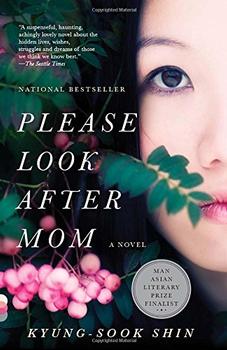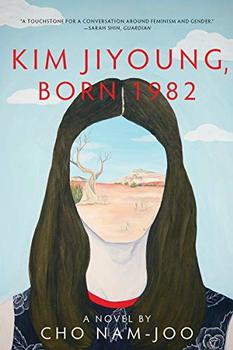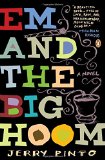Summary | Excerpt | Reading Guide | Reviews | Beyond the book | Read-Alikes | Genres & Themes | Author Bio

A Novel
by Kyung-sook ShinKyung-Sook Shin's novel Please Look After Mom begins with the disappearance of Park So-nyo, Korean wife and mother. The following chapters - narrated in turns by So-nyo's daughter (an accomplished writer), her eldest son (a successful businessman), her unfaithful husband, and by So-nyo herself - are largely recollections of So-nyo's life and her complete devotion to her family over the decades. Shin uses these characters' viewpoints to explore the themes of family, love, loss and sacrifice.
The overall tone is elegiac, and there's very little joy to be found in this novel. One is sad not only for the people who have lost So-nyo, but for the woman herself, as it gradually becomes apparent that she gave her all to her family but was in turn completely neglected and unappreciated by them. As So-nyo's story is told through each character's reminiscence, she is described as remarkably saintly while her family is revealed to be exceptionally self-absorbed. They have never bothered to notice how key So-nyo is to their lives and happiness; she has been their very core and yet they have all taken her for granted. Only when she's gone do they think about how much she's meant to them, how much they relied on her, and with her disappearance comes the knowledge that their lives have been irreparably changed.
Shin's narrative voices become confusing at times; So-nyo's daughter's and husband's thoughts are relayed in second-person present tense: "Since you heard about Mom's disappearance, you haven't been able to focus on a single thought, besieged by long-forgotten memories unexpectedly popping up." It reads awkwardly and it's frequently hard to tell when "you" refers to the narrator and when the pronoun references a group of people. It's unclear what the author was trying to convey by using this style; perhaps these characters are engaging in self-recrimination by talking to themselves in a reproachful tone. But it's inconsistent, as the equally guilty son's recollections are in third person, and the section narrated by So-nyo is in first person. Some readers may find these different narrative styles distracting.
While the book's themes are universal, its details are specific to rural Asia. The book is filled with descriptions of the everyday lives of Korean farmers as the characters take turns recalling the sacrifices of their mother. The reader learns about farming and cooking, childbirth, the holding of ancestral rights, and dealing with the poverty that often accompanies an agrarian life. It's a fascinating glimpse of a lifestyle unfamiliar to many who are products of Western culture.
The novel does become somewhat melodramatic; So-nyo's utter selflessness surpasses belief, as does the complete indifference of those around her. Still, the book's complex themes and touching nature make it a likely candidate for book clubs and those who enjoy emotional plots. Please Look After Mom is likely to leave sensitive readers weeping by book's end.
![]() This review was originally published in The BookBrowse Review in May 2011, and has been updated for the
April 2012 edition.
Click here to go to this issue.
This review was originally published in The BookBrowse Review in May 2011, and has been updated for the
April 2012 edition.
Click here to go to this issue.

If you liked Please Look After Mom, try these:

by Cho Nam-joo, Jamie Chang
Published 2021
A fierce international bestseller that launched Korea's new feminist movement, Kim Jiyoung, Born 1982 follows one woman's psychic deterioration in the face of rigid misogyny.

by Jerry Pinto
Published 2014
Em and the Big Hoom is a modern masterpiece, an accomplished debut that is graceful and urgent, with a one-of-a-kind voice that will stay with readers long after the last page.
Your guide toexceptional books
BookBrowse seeks out and recommends the best in contemporary fiction and nonfiction—books that not only engage and entertain but also deepen our understanding of ourselves and the world around us.